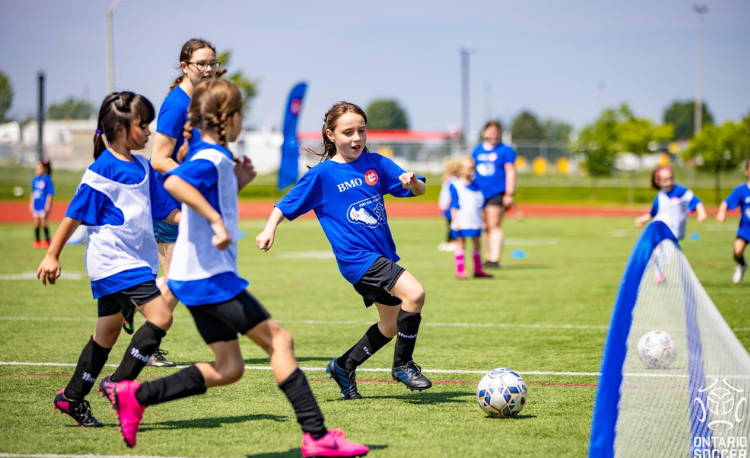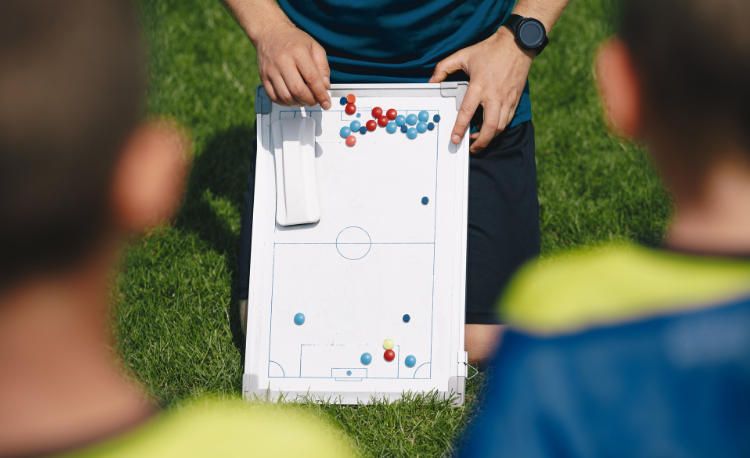Confidence tricks
Developing young players is not just about technique – you have to coach their self-esteem, too. TOM WHEELER provides some advice on promoting positivity.
Success at all levels of youth soccer comes from the individual development of players - and each club will have a different view on how to accomplish this.
Yet, in the past, clubs have all too often been guilty of setting youth players up to fail and diminishing their self-confidence, mainly because of timescales and pressure.
But for a club to have an effective youth development system, it is now widely recognised they must promote and develop confidence within their players.
Developing this self-esteem within players allows them to believe they can overcome any obstacle, as they thrive to achieve their full potential - and, in some instances, reach the elite.
Therefore, if we are to fully flourish as a coach within youth development, it is essential that we promote self-confidence within our players.
So, what techniques can we utilise in our coaching, on and off the pitch, to promote a self-confidence environment?
Positive manner
Praise your players. Although everyone knows it is important to give praise, it is vital to do so meaningfully.
Developing players’ ability to self-praise for their hard work stimulates self-esteem and self-confidence.
As a coach, praise hard work regardless of the outcome. If a player lacks hard work, ask them questions to reflect on how much effort they put in.
Success
On the training pitch, success builds self-confidence. Within the planning, delivery and reflection of a training session, you must ensure there is success built in - practices need to be challenging, but achievable.
Success encourages players to face and overcome challenges, creating a positive feedback loop to further self-confidence and achievement.
Freedom
By giving players the freedom to express themselves, they will enjoy their sport to a greater level, augmenting their self-confidence.
Freedom additionally stimulates a player’s frontal cortex in their brain, advocating creative thinking.
“Children have a massive capacity to think and behave creatively. An effective coach will support and encourage this”, wrote Pete Sturgess, the Football Association’s technical lead coach for 5-11 year olds.
Patience
Do not put a timescale on development. Each player will progress at different non-linear rates that change due to innumerable factors.
As coaches, we must be patient and supportive, and encouraging players to feel comfortable and self-assured as they are developing.
Pressure on youth players does not correspond to self-confidence or development.
Turn negatives into positives
If a player makes a mistake, think about their intentions.
If a direct pass was inaccurate, consider their thought process beforehand. The player might have shown excellent vision or pre-orientation.
As a coach, you can turn a negative outcome into a positive, thus elevating self-confidence.
In conclusion, the emphasis is on you as a coach to create an environment which will support the development of players’ self-esteem.
Can you be a coach who implements this within your club and helps develop the next generation of confident and positive soccer players?
Related Files
Newsletter Sign Up
Coaches Testimonials

Gerald Kearney, Downtown Las Vegas Soccer Club

Paul Butler, Florida, USA

Rick Shields, Springboro, USA

Tony Green, Pierrefonds Titans, Quebec, Canada
Subscribe Today
Discover the simple way to become a more effective, more successful soccer coach
In a recent survey 89% of subscribers said Soccer Coach Weekly makes them more confident, 91% said Soccer Coach Weekly makes them a more effective coach and 93% said Soccer Coach Weekly makes them more inspired.
*includes 3 coaching manuals
Get Weekly Inspiration
All the latest techniques and approaches
Soccer Coach Weekly offers proven and easy to use soccer drills, coaching sessions, practice plans, small-sided games, warm-ups, training tips and advice.
We've been at the cutting edge of soccer coaching since we launched in 2007, creating resources for the grassroots youth coach, following best practice from around the world and insights from the professional game.







